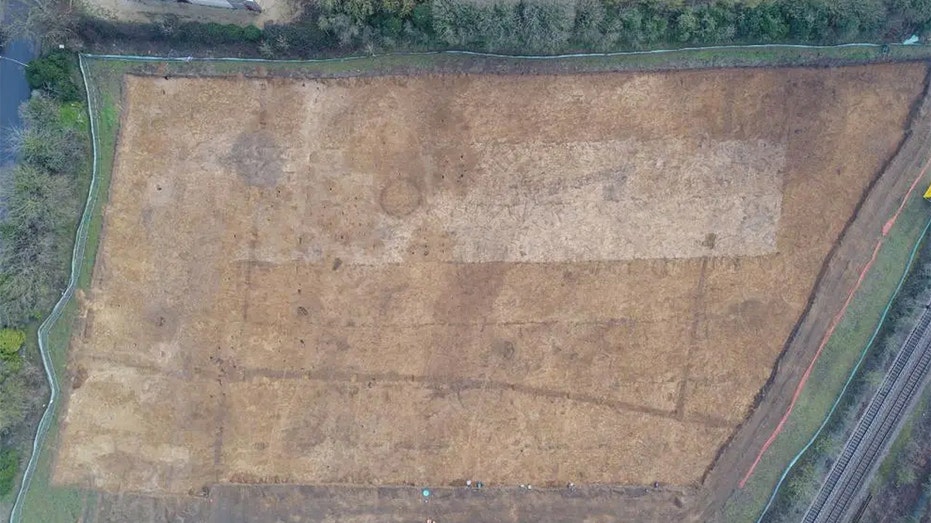- by foxnews
- 01 Jun 2025
Late Bronze Age settlement dating back 3,000 years uncovered amid road work: 'Important discovery'
Archaeologists uncovered an ancient settlement and cremation cemetery dating back 3,000 years ahead of highway construction at Europa Way in northwest Ipswich, in the United Kingdom.

The Suffolk City Council described the site as a "Late Bronze Age settlement and cremation cemetery" that dates back 3,000 years; they shared the information in a press release dated mid-April. In Britain, the Bronze Age lasted from 2500 B.C. to roughly 800 B.C.
"Intensive Late Bronze Age activity at Europa Way was located on the glacial outwash gravels, which outcrop on the lower slopes of the northern side of the valley of the River Gipping," the city council said in a statement.
"There is a rich record of prehistoric land use on the lighter soils of the terrace and outwash gravels, which flank the River Gipping's course upstream of Ipswich."
Archaeologists uncovered 18 burials dating back to 1200 B.C., along with remains of various structures and a host of ancient artifacts.
"The postholes of two roundhouses, numerous four and six-post structures, and two ring-gullies were found at the site near Bramford and Sproughton, along with multiple pottery finds," the city council's statement read.
"This evidence indicates a settlement with a mixed agricultural economy including cereal production, and breeding and raising cattle."
Experts from Cotswold Archaeology, Oxford Archaeology and Suffolk County Council's Archaeological Service all participated in the excavation, with Oxford Archaeology taking the lead on the fieldwork.
In a statement, Oxford Archaeology senior project manager Chris Thatcher said that the discovery was important in understanding "prehistoric activity along this stretch of the Gipping valley."
"Some aspects of the settlement remains are of considerable significance in the wider regional context, especially the substantial pottery finds, the cremation cemetery, and the way that the agricultural landscape was organized," the archaeologist said.
Thatcher added that a distinctive feature of the cremation cemetery was "how close it was to the buildings and daily life."
"[T]he inhabitants of the settlement were likely buried close by," he also said.
"This is part of an emerging pattern of Late Bronze Age burial activity, and appears to mark a shift from the Middle Bronze Age preference for major cemeteries, typically within extensive field systems, or the deceased being interred at earlier-established ancestral monuments."
In a statement, Suffolk County Council cabinet member Philip Faircloth-Mutton hailed the discovery as showing Suffolk's "unique history, and add[ing] another layer to our understanding of what life was like for previous generations in our part of the world."
"This is why it is important that the council's Archaeological Service is here to help record and preserve our past," Faircloth-Mutton said.
"As important and interesting as finds are today, who knows how significant this information might be in generations to come."
- by foxnews
- descember 09, 2016
Beach days benefit mental health and well-being as visits provide 'sea therapy'
Discover the benefits of sea therapy as experts highlight how beach visits can boost mental well-being, reduce stress and improve sleep through mindfulness and relaxation.
read more


